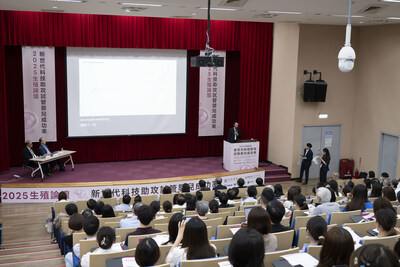Is Increased Use of PGT-A Always Better? Experts Call for Evidence-Based Use of Mosaic Embryos
Choosing the Right PGT-A Platform: NUWA Fertility and Global Experts Unite to Advance IVF Success
TAIPEI, Aug. 6, 2025 /PRNewswire/ — Preimplantation Genetic Testing for Aneuploidy (PGT-A), a screening method used during IVF to assess embryo chromosomal health, has gained widespread adoption in reproductive medicine worldwide. Yet the accuracy of various PGT-A platforms and their true clinical value remain points of ongoing debate. To dive deeper into the science behind PGT-A and explore the latest validated technologies, NUWA Fertility partnered with the Institute of Biotechnology at National Taiwan University to host its annual Reproductive Medicine Forum on August 3. The event welcomed over 200 fertility professionals and representatives from more than 65 reproductive centers, drawing international experts from the U.S. and Japan for a day of lively discussion and data-driven insights.
New Global Research Questions Conventional Use of Mosaic Embryos
One of the forum’s most anticipated speakers, Dr. Chaim Jalas – CEO and Director of Research and Development at U.S.-based Juno Genetics – presented findings from two prospective studies spanning the U.S. and Europe, with a combined dataset of 15,000 embryo samples. The research showed that when PGT-A is performed using the most advanced, clinically validated platforms, mosaic embryos (those containing both normal and abnormal cells) do not necessarily need to be discarded. By accurately identifying and excluding only embryos with chromosomal abnormalities, clinics can improve live birth rates, reduce embryo waste, and lower the risk of miscarriage.
Dr. Chi-Hong Liu, the Chief Medical Advisor at NUWA Fertility and convener of the forum, emphasized that PGT-A can only deliver meaningful results when the platform is backed by solid evidence and high diagnostic accuracy. He noted that many currently used platforms lack sufficient clinical validation when it comes to identifying mosaic embryos. “Many embryos classified as mosaic still have the potential to implant and result in healthy live births,” said Dr. Liu. “If we discard them based on imprecise technology, we’re not only limiting patients’ chances but possibly wasting embryos with real potential.”
AI-Powered Embryo Selection: Precision without Harm
Mr. Takahashi, a senior embryologist from Japan’s renowned Kato Ladies Clinic, shared advancements in embryo assessment using AI combined with time-lapse imaging technology. This non-invasive method continuously monitors embryo development and uses algorithmic scoring to improve selection accuracy – particularly useful for patients with a limited number of eggs or who should avoid repeated ovarian stimulation. The approach has significantly improved success rates for single embryo transfer, a strategy aimed at reducing the risks of multiple pregnancies.
Behind Every IVF Success: A Seamless Teamwork Between Lab and Clinic
Dr. Shang-Gwo Horng, the Director of NUWA Fertility Center, offered clinical strategies for gentle yet effective ovarian stimulation and medication protocols that support embryo quality. And Dr. Chung-Hao Lu, a leading researcher and embryologist, discussed best practices for helping patients improve embryo outcomes through lifestyle and treatment. He emphasized that even the best PGT-A platform can fail if the biopsy timing, technique, or sample handling are subpar. “Close coordination between physicians and embryologists is absolutely essential to maximize IVF success,” said Dr. Lu.
NUWA Forum: Advancing Fertility Through Evidence-Based Collaboration
Dr. Chi-Hong Liu concluded by reaffirming NUWA’s mission to drive innovation through open knowledge-sharing and scientific rigor. “By building a better-validated, more reliable PGT-A platform, we can help patients increase their chances of success while reducing unnecessary stress and resource loss.”
Now in its third consecutive year, NUWA Fertility’s Reproductive Medical Forum continues to be a vital platform for pushing boundaries in fertility care. Dr. Liu added that NUWA will remain committed to integrating clinical decision-making, lab excellence, and global collaboration to elevate Taiwan’s reproductive medicine on the international stage.
Get to know NUWA: https://www.nuwacare.com/en
![]() View original content to download multimedia:https://www.prnewswire.com/apac/news-releases/us-japan-and-taiwan-experts-gather-at-nuwa-forum–over-200-reproductive-specialists-explore-the-future-of-integrated-fertility-technology-302522317.html
View original content to download multimedia:https://www.prnewswire.com/apac/news-releases/us-japan-and-taiwan-experts-gather-at-nuwa-forum–over-200-reproductive-specialists-explore-the-future-of-integrated-fertility-technology-302522317.html
SOURCE NUWA


